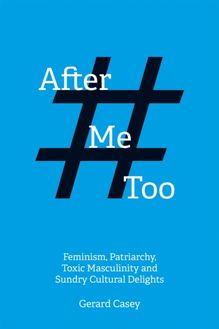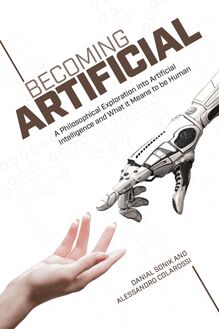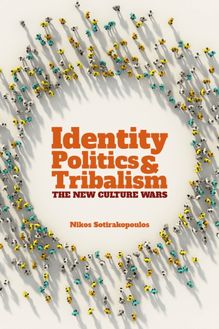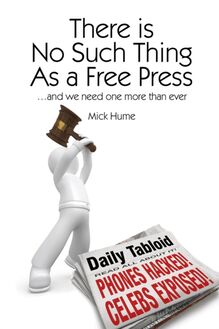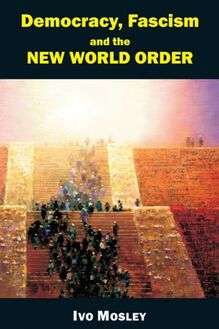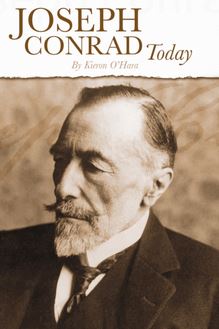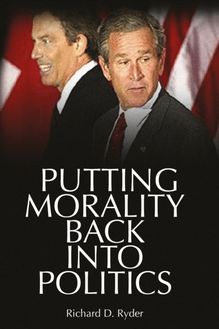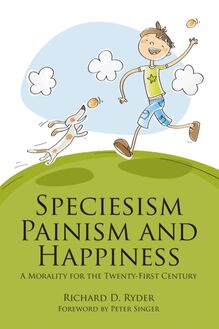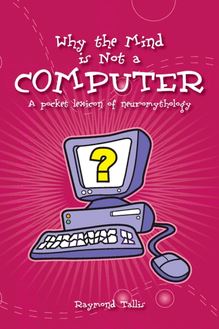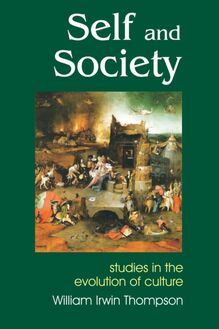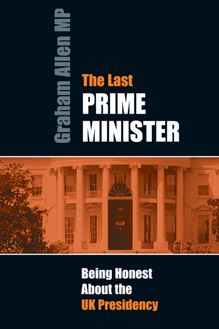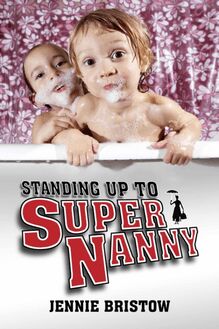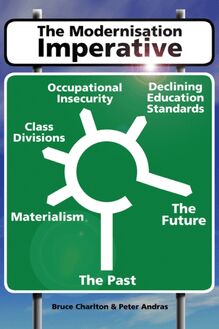-
 Univers
Univers
-
 Ebooks
Ebooks
-
 Livres audio
Livres audio
-
 Presse
Presse
-
 Podcasts
Podcasts
-
 BD
BD
-
 Documents
Documents
-
- Cours
- Révisions
- Ressources pédagogiques
- Sciences de l’éducation
- Manuels scolaires
- Langues
- Travaux de classe
- Annales de BEP
- Etudes supérieures
- Maternelle et primaire
- Fiches de lecture
- Orientation scolaire
- Méthodologie
- Corrigés de devoir
- Annales d’examens et concours
- Annales du bac
- Annales du brevet
- Rapports de stage
La lecture à portée de main
Vous pourrez modifier la taille du texte de cet ouvrage
Découvre YouScribe en t'inscrivant gratuitement
Je m'inscrisDécouvre YouScribe en t'inscrivant gratuitement
Je m'inscrisEn savoir plus
Vous pourrez modifier la taille du texte de cet ouvrage
En savoir plus

Description
Sujets
Informations
| Publié par | Andrews UK |
| Date de parution | 05 novembre 2014 |
| Nombre de lectures | 0 |
| EAN13 | 9781845407780 |
| Langue | English |
Informations légales : prix de location à la page 0,0550€. Cette information est donnée uniquement à titre indicatif conformément à la législation en vigueur.
Extrait
Title page
Global Philosophy
What Philosophy Ought to Be
NICHOLAS MAXWELL
SOCIETAS
essays in political
& cultural criticism
imprint-academic.com
Publisher information
Copyright © Nicholas Maxwell, 2014
2014 digital version by Andrews UK Limited
www.andrewsuk.com
The moral rights of the author have been asserted.
No part of this publication may be reproduced in any form without permission, except for the quotation of brief passages in criticism and discussion.
Originally published in the UK by
Imprint Academic, PO Box 200, Exeter EX5 5YX, UK
Originally distributed in the USA by
Ingram Book Company,
One Ingram Blvd., La Vergne, TN 37086, USA
Other titles by Nicholas Maxwell:
What’s Wrong With Science?
From Knowledge to Wisdom
The Comprehensibility of the Universe
The Human World in the Physical Universe
Is Science Neurotic?
Cutting God in Half—and Putting the Pieces Together Again
How Universities Can Help Create a Wiser World: The Urgent Need for an Academic Revolution
With R. Barnett, ed., Wisdom in the University
L. McHenry, ed., Science and the Pursuit of Wisdom: Studies in the Philosophy of Nicholas Maxwell
Preface: Learning, Global Problems, and Play
These essays are about education, learning, rational inquiry, philosophy, science studies, problem solving, academic inquiry, global problems, wisdom and, above all, the urgent need for an academic revolution.
Despite this range and diversity of topics, there is a common underlying theme. Education ought to be devoted, much more than it is, to the exploration of real-life, open problems; it ought not to be restricted to learning up solutions to already solved problems—especially if nothing is said about the problems that provoked the solutions in the first place. There should be much more emphasis on learning how to engage in cooperatively rational exploration of problems: even five-year-olds could begin to learn how to do this. A central task of philosophy ought to be to keep alive awareness of our unsolved fundamental problems—especially our most fundamental problem of all, encompassing all others: How can our human world—and the world of sentient life more generally—imbued with the experiential, consciousness, free will, meaning, and value, exist and best flourish embedded as it is in the physical universe? This is both our fundamental intellectual problem and our fundamental problem of living.
As far as the latter is concerned, we are at present heading towards disaster—as our immense, unsolved global problems tell us: population growth, destruction of natural habitats and rapid extinction of species, vast inequalities of wealth and power around the world, pollution of earth, sea, and air, our proclivity for war, and above all global warming. If we are to resolve our conflicts and global problems more intelligently, effectively, and humanely than we have managed to do so far, then we have to learn how to do it. That, in turn, requires that our institutions of learning, our universities and schools, are rationally designed and devoted to the task. At present they are not. That is the crisis behind all the others. From the past we have inherited the idea that the basic intellectual aim of inquiry ought to be to acquire knowledge. First, knowledge is to be acquired; then, secondarily, it can be applied to help solve social problems. But this is dangerously and damagingly irrational, and it is this irrationality that is, in part, responsible for the genesis of our current global problems, and our current incapacity to solve them. As a matter of supreme urgency, we need to transform academia so that it becomes rationally devoted to helping humanity learn how to make progress towards as good and wise a world as possible. This would involve putting problems of living—including global problems—at the heart of academia, problems of knowledge and technological know-how emerging out of, and feeding back into, the central task to help people tackle problems of living in increasingly cooperatively rational ways. Almost every department and aspect of academia needs to change. We need a new kind of academic inquiry devoted not just to knowledge but rather to wisdom—wisdom being the capacity to realize what is of value in life for oneself and others, wisdom including knowledge and technological know-how, but much else besides.
So, this is what these essays seek to provoke: a concerted effort to transform our institutions of learning so that they become rationally and effectively devoted to helping us learn how to create a wiser world.
With these essays before me, I can see that there is one crucial element of learning about which they say nothing—or nothing explicit. The vital role of play in learning. All mammals—or at any rate almost all mammals—learn by means of play. Cats, tigers, foxes, and other predators learn to hunt by means of endless mock fights when kittens and cubs. Deer, sheep, and antelope learn to escape by means of playful leaps and bounds when young. We are mammals too. Almost certainly, we learnt how to be adult human beings by means of play during the millions of years we evolved into homo sapiens living in hunting and gathering tribes. Children today, out of school, learn by means of play. Learning by means of play is almost certainly fundamental to our make-up. Education needs to exploit it. Schools and universities need to become places of play. Successful problem solving is often likely to be playful in character. The youthful Einstein called doing physics “getting up to mischief”.
But our most serious problems of living are so grim, so imbued with suffering, wasted lives, and unnecessary death, that the idea of approaching them in a playful spirit seems sacrilegious. We need to keep alive tackling of intellectual problems so that playful capacities can be exercised—if for no other reason (and other reasons there are, of course, aplenty). There are two really worthy impulses behind all rational inquiry: delight and compassion.
Chapter One: Philosophy Seminars for Five-Year-Olds
For Harry
All of us, I believe, are extraordinarily active and creative intellectually when we are very young. Somehow, in the first few years of life, we acquire an identity, a consciousness of self; we discover, or create, a whole view of the world, a cosmology; and we learn to understand speech, and to speak ourselves. And we achieve all this without any formal education whatsoever. Compared with these mighty intellectual achievements of our childhood, the heights of adult artistic and scientific achievement all but pale into insignificance. It is reasonable to suppose that there is a biological, a neurological, basis for our extraordinary capacity to learn when we are very young. It probably has to do with the fact that our brains are still growing during the first few years of life. It is striking that there are things that can only be learnt during this time. If we have not had the opportunity to learn to speak by the age of twelve, we will never really learn to speak. Lightning calculators all begin to acquire their extraordinary arithmetical skills when very young. Some things, it seems, become too difficult for us to learn as we grow older. In our early childhood we are forced, by our situation, to be creative philosophers and metaphysicians, preoccupied by fundamental issues. One has only to think of the endless questioning of young children to appreciate something of their insatiable hunger to know, to understand.
The tragedy is that formal education so rarely helps us to recognize and to develop our early profound intellectual experiences and achievements. Instead of encouraging our instinctive curiosity to develop into adulthood, all too often education unintentionally stifles and crushes it out of existence.
Academic inquiry ought to be the outcome of all our efforts to discover what is of value in existence and to share our discoveries with others. At its most important and fundamental, inquiry is the thinking we engage in as we live, as we strive to realize what is of value to us in our life. All of us ought both to contribute to and to learn from interpersonal public inquiry. This two-way traffic of teaching and learning ought to start at the outset, when we first attend school. Young children, at school, need to be encouraged to tell each other about their discoveries, their experiences, their thoughts and problems. The teacher needs to encourage both speaking and listening. Such a class or seminar, devoted to the cooperative, imaginative, and rational exploration of problems encountered in life, ought to form a standard—even a central and fundamental—part of all education, science, and scholarship, from primary school to university.
If this were the case, then we might all discover how to use science and scholarship so as to develop our own thinking—and living. Telling others of our problems and ideas—and listening to others tell of theirs—would help us to discover and to value our own thinking. It is all too easy to dismiss our most serious and original thinking—those moments of bafflement, surmise, and wonder—as mere wordless feeling, irredeemably private, signifying little. This is especially the case in childhood. Unarticulated, our thinking is liable to become neglected, stagnant, forgotten. If it is to flourish it is vital that we develop and constantly practise the difficult art of putting what we feel and think into public words. An education that gave an intellectually fundamental role to the development of this art would not only stimulate the growth of personal thinking, it would also enable us to discover vital interconnections between our personal thinking and publ
-
 Univers
Univers
-
 Ebooks
Ebooks
-
 Livres audio
Livres audio
-
 Presse
Presse
-
 Podcasts
Podcasts
-
 BD
BD
-
 Documents
Documents
-
Jeunesse
-
Littérature
-
Ressources professionnelles
-
Santé et bien-être
-
Savoirs
-
Education
-
Loisirs et hobbies
-
Art, musique et cinéma
-
Actualité et débat de société
-
Jeunesse
-
Littérature
-
Ressources professionnelles
-
Santé et bien-être
-
Savoirs
-
Education
-
Loisirs et hobbies
-
Art, musique et cinéma
-
Actualité et débat de société
-
Actualités
-
Lifestyle
-
Presse jeunesse
-
Presse professionnelle
-
Pratique
-
Presse sportive
-
Presse internationale
-
Culture & Médias
-
Action et Aventures
-
Science-fiction et Fantasy
-
Société
-
Jeunesse
-
Littérature
-
Ressources professionnelles
-
Santé et bien-être
-
Savoirs
-
Education
-
Loisirs et hobbies
-
Art, musique et cinéma
-
Actualité et débat de société
- Cours
- Révisions
- Ressources pédagogiques
- Sciences de l’éducation
- Manuels scolaires
- Langues
- Travaux de classe
- Annales de BEP
- Etudes supérieures
- Maternelle et primaire
- Fiches de lecture
- Orientation scolaire
- Méthodologie
- Corrigés de devoir
- Annales d’examens et concours
- Annales du bac
- Annales du brevet
- Rapports de stage
